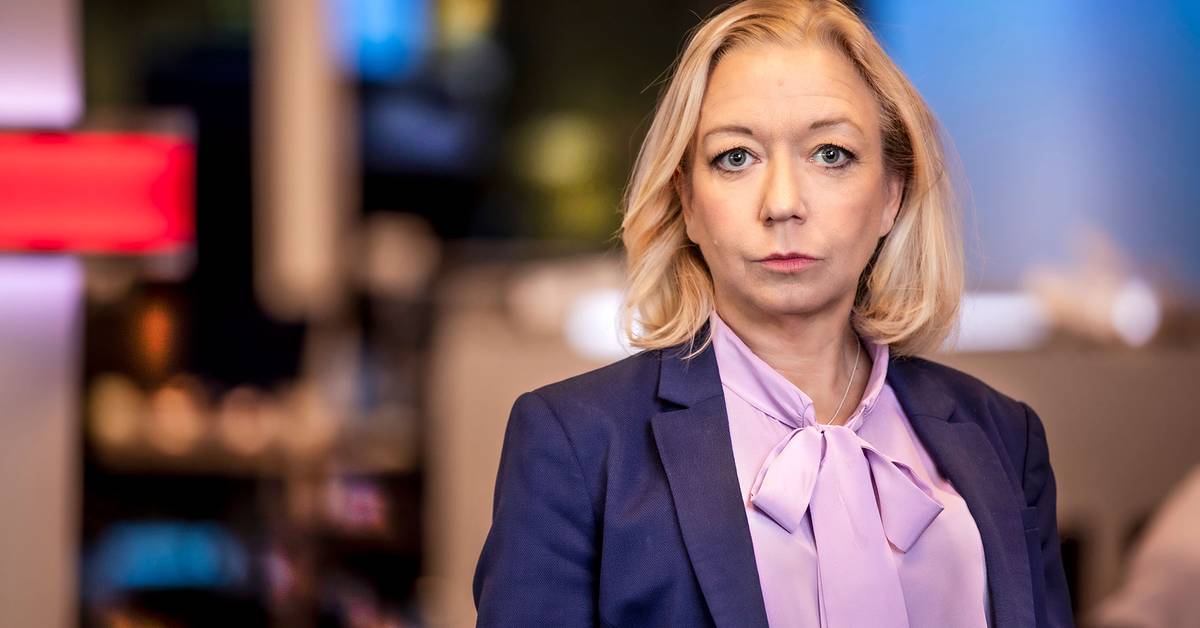The Christian Democrats are used to losing public opinion between elections.
The spring of 2019, when KD rushed to close to 11 percent, was an anomaly that was rooted, among other things, in the fact that Ebba Busch (KD) was the first to open up to a collaboration with the Sweden Democrats.
Before that, the party was below 4 percent for more than half the term.
And now you are there again.
An important explanation is the handling of the electricity price subsidy.
The debate has revolved around the unrealistic promise that the support would be in place on November 1 and paid out before Christmas.
It doesn't take a deep knowledge of Swedish politics to realize that that schedule would be impossible to keep.
But instead of admitting it immediately after the change of government, Ebba Busch (KD) had to devote press meeting after press meeting to apologizing for the delay.
Busch target for betrayal debate
The election promise was shared by the four party leaders, but it is the energy and industry minister who has become the target of the opposition's betrayal debate and the anger of the entrepreneurs.
And it has had effects in public opinion.
Since the election, KD has retreated 1.7 percentage points, according to SVT/Novus.
A similar decline can be seen in the trust in Ebba Busch, which is likely connected to the difficulty of going from a sly opposition politician to a responsible minister.
So far, the ministerial post has been a downer for KD.
But that does not mean that it was a mistake to prop it up in the government negotiations.
Voters have a short memory, which suggests that the betrayal debate will subside as the electricity price subsidy is paid out.
However, this assumes that the government has a model in place for next winter.
Should one fail to do so, it will be an easy match for the Social Democrats to criticize the Minister of Energy and Industry for a lack of ability in the art of governing.
Tough start for the new C leader
Not only the Christian Democrats are being pressured in public opinion six months after the election.
With 4.9 percent, the Center Party is within the margin of error for the Riksdag barrier and the trend is downward.
This is not infrequently the consequence when such a profiled and established party leader as Annie Lööf (C) chooses to throw in the towel and is replaced by an unproven successor.
Add to that the voters' low ratings in all substantive issues.
A tough start for Muharrem Demirok (C), then, which is hardly made easier by the fact that he qualifies for a historic jumbo place in the trust league.
The Green Party's rise in public opinion also continues.
As the smallest opposition party, both the party and their most important profile issue have ended up in the shadows, which is reinforced by the fact that the government has a majority for its policy.
In short, it matters little what the Green Party thinks and thinks.
In addition, MP now comes in second place after SD when voters list which party they like the least, according to election researchers in Gothenburg.
Should put in extra gear
And as for the tried and tested Liberals, they have not yet managed to convince the voters that it matters that they are in the government.
What have they really got through that would not have become a reality without their five ministerial posts?
Given that the Liberals were the party that made the biggest concessions in the Tidö Agreement, that question needs an answer.
It is a long way until the election, but the small parties that want to survive in the Riksdag on their own merits, not on support votes, would probably do well to put in an extra gear now.
Regardless of whether it is about necessary renewal work in opposition or about delivering on its election promises as the governing party.

